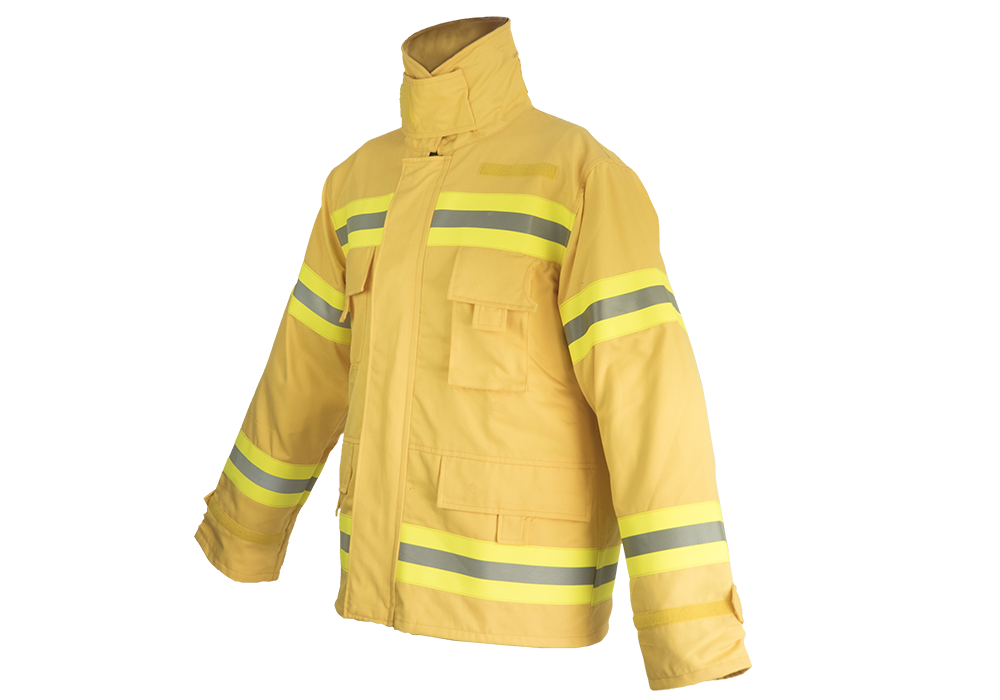
Made with high quality materials, the wildland firefighter jacket 1 simple layer is a comfortable and light garment with a high level of protection due to the fireproof properties of the fabric. Seams entirely sewn with CONEX® thread for more resistance to friction and wear inherent to wildland environments. Protects against electric arc (anti-static), flames, tearing, traction and abrasion.
Standards: EN ISO 13688/13, EN ISO 11612/15, EN ISO 1149-5/08, EN ISO 15614/07 and EN ISO 15384/20.
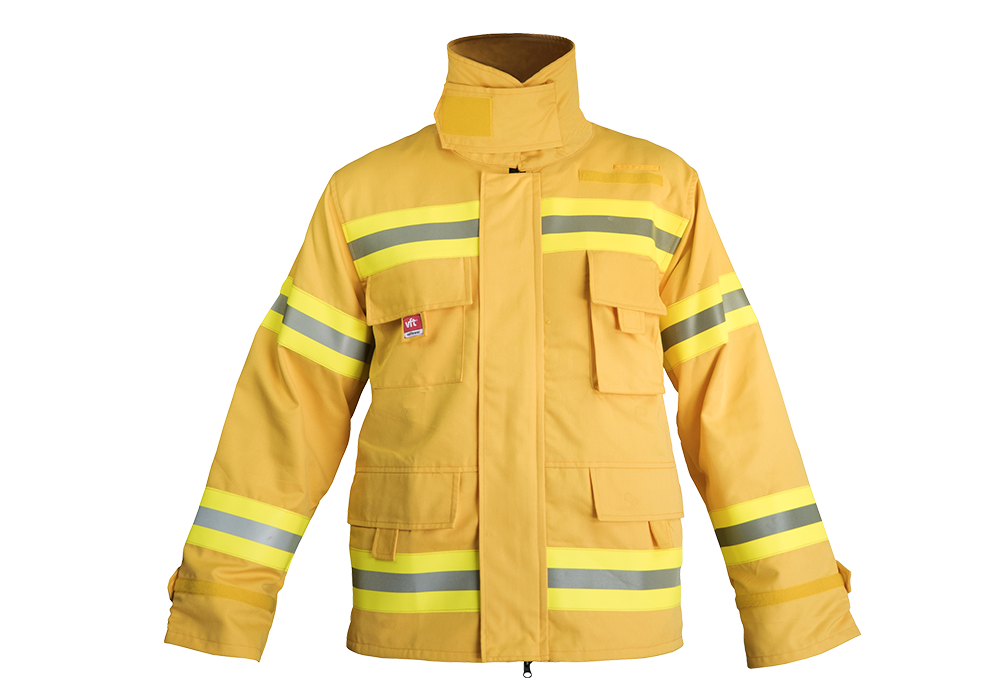
Fabric based on Viscose FR 64%, Meta-aramid 30%, Para - Aramid 5%, Antistatic fiber 1% fibers, 270 gr/m2, for perfect thermal and radiation insulation. Raised neck for nape protection.
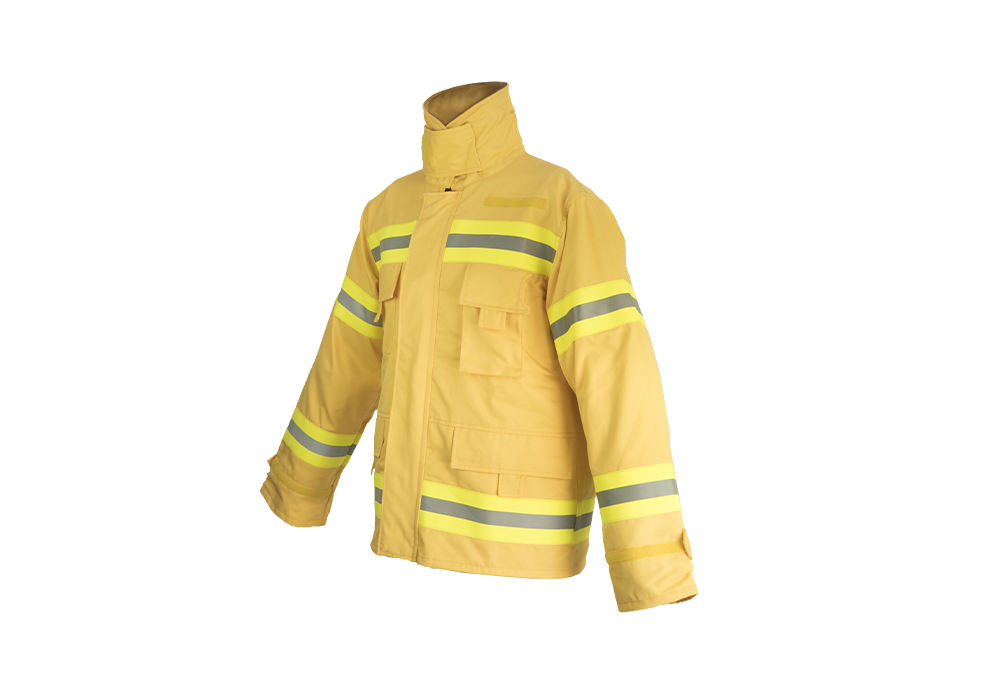
Great anti-static resistance, protection against flames, tearing, traction and abrasion thanks to its CONEX® seams. Adjustable wrists with fire-resistant Velcro®. Central safety quick open zipper and easy open system. Includes Velcro® for identification on the chest.
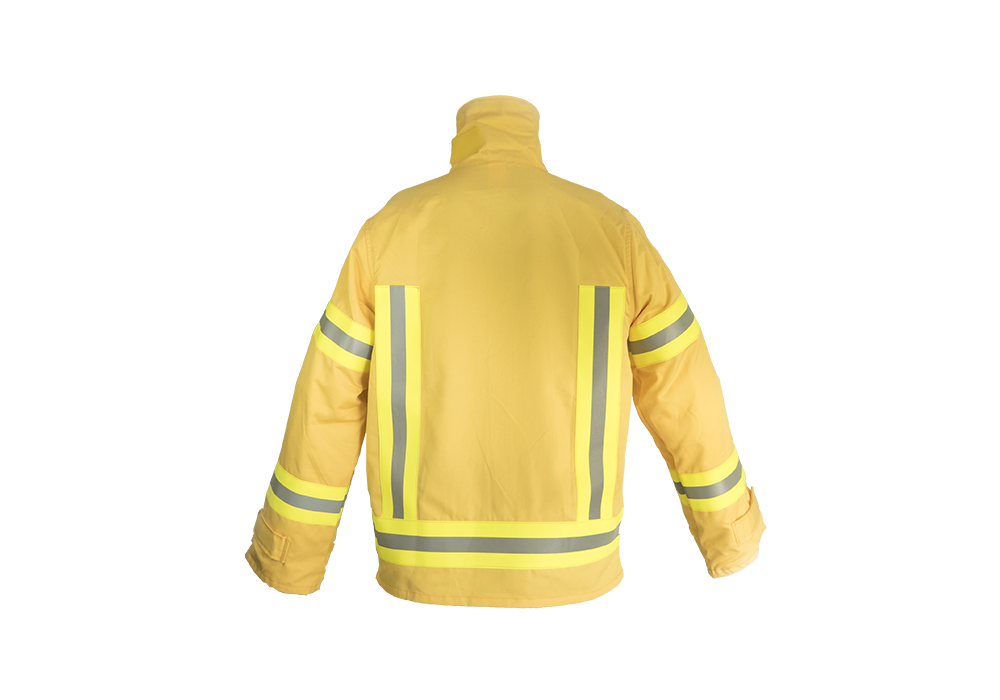
High visibility reflective straps on the front, arms and across the back for a guaranteeing a 360º visible position on the ground.
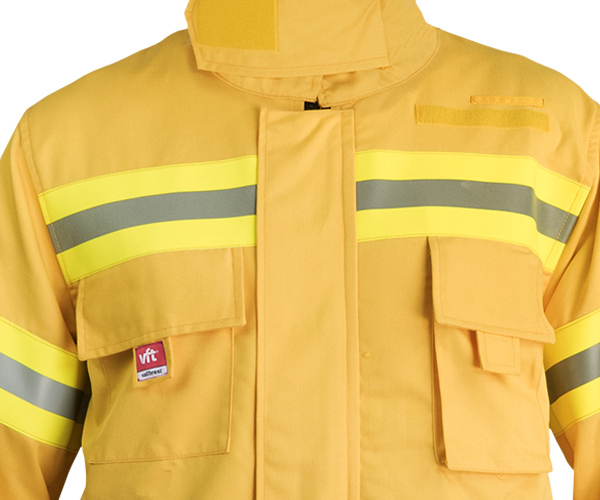
4 front pockets with an oversized flap for easier opening with gloves.
Front left top pocket adapted for portable radios.
Attachment ring for radio holster at shoulder height.
Adjustable cuffs with Velcro® on the outside.


